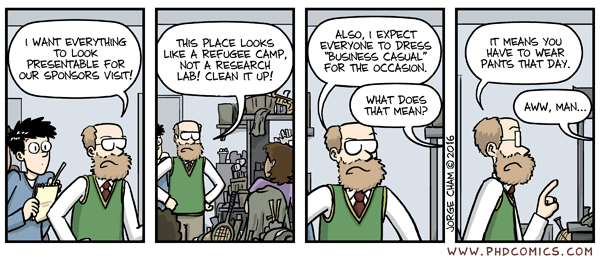
“There is nothing to writing. All you do is sit down at a typewriter and bleed.” – Ernest Hemingway
Being confident in your ability to formulate thoughts into words that end up as coherent text on paper is a necessary skill for succeeding in your graduate career, to say nothing of life beyond. Yet many students view good writing not as a skill—that is, something that can be learned—but as a blessing gifted to the fortunate few: like winning the lottery or having nice hair.
But as your incoming APAGS Member-at-Large, Research/Academic Focus , I’m here to tell you that writing is a skill, and becoming a better writer takes little more than practice, dedication, and time. As communicating ideas through writing is an essential aspect of psychological science, I’ve assembled some tips for how to become a better scientific writer below. They may not make academic life effortless, but they do a pretty good job at stopping the bleeding.
- Write what you mean…
Seems pretty simple, right? More often than not though we find ourselves knee-deep in word-muck at the end of our third paragraph, unable to decipher which variable we hypothesized to predict what outcome. At the outset, it is very easy to get wrapped up in jargon so write exactly what you mean, even if it sounds (at first blush) like a kindergartner wrote your introduction. You can always go back through your writing a second time to polish it up, but the single most important thing in writing is to manifest readable content.



